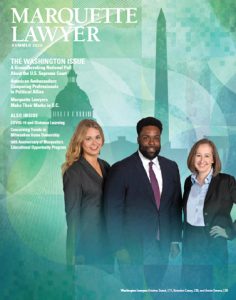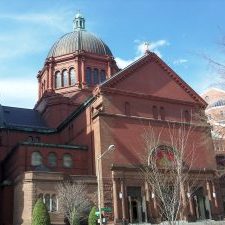The Washington, D.C., Issue of the Marquette Lawyer Magazine

Amid all the global disruptions that started in March, Marquette Law School moved forward effectively in teaching students to be lawyers and in offering, as best we could, the public engagement we are known for. One important aspect of the latter is the release of the new issue of the Marquette Lawyer magazine, produced with a few internal procedural adjustments, but no change in schedule or in our commitment to provide high-quality reading to Marquette lawyers, all lawyers in Wisconsin, and many interested others.
Washington, D.C., is the focus of the new issue. The Washington that’s in

